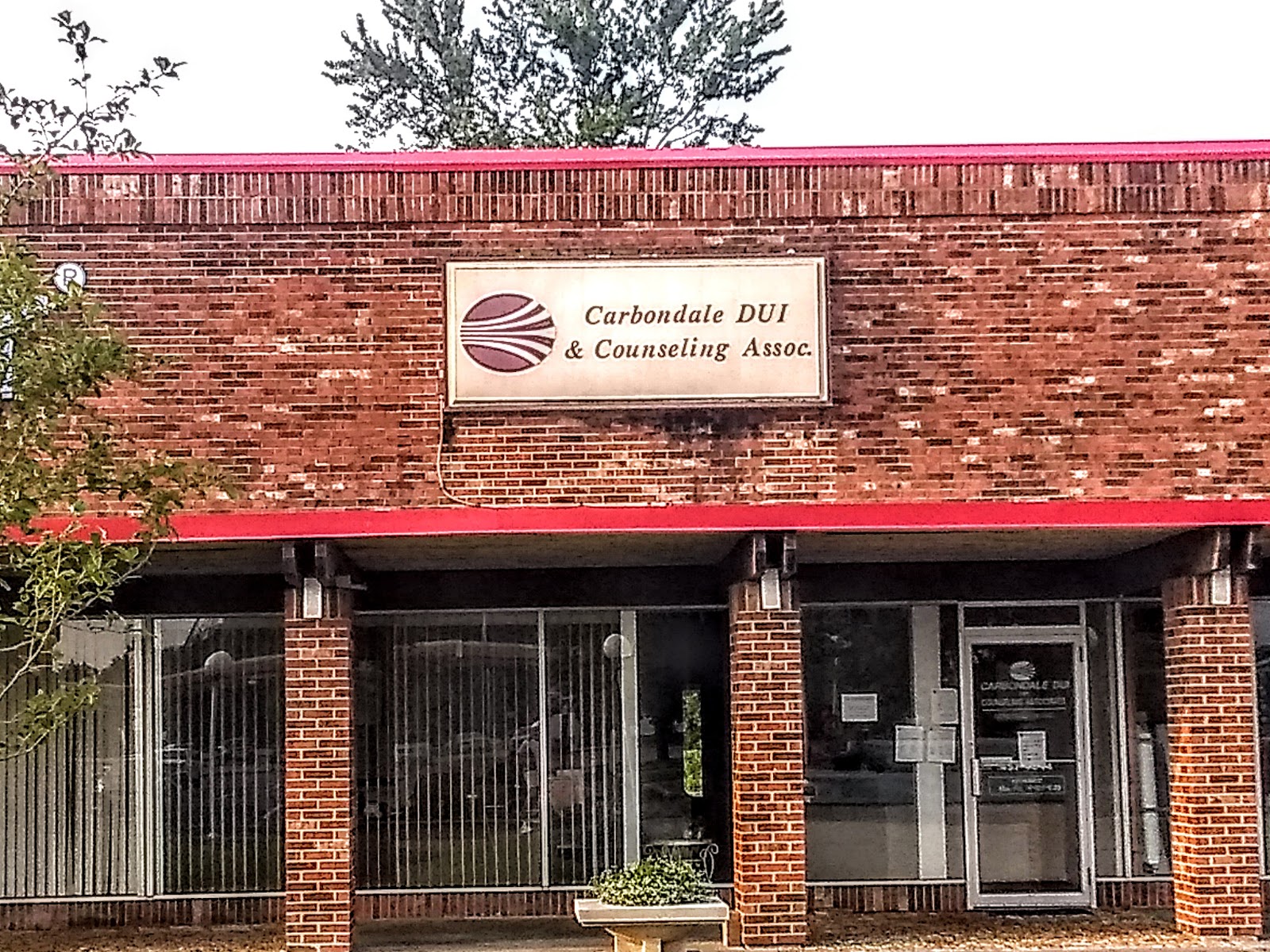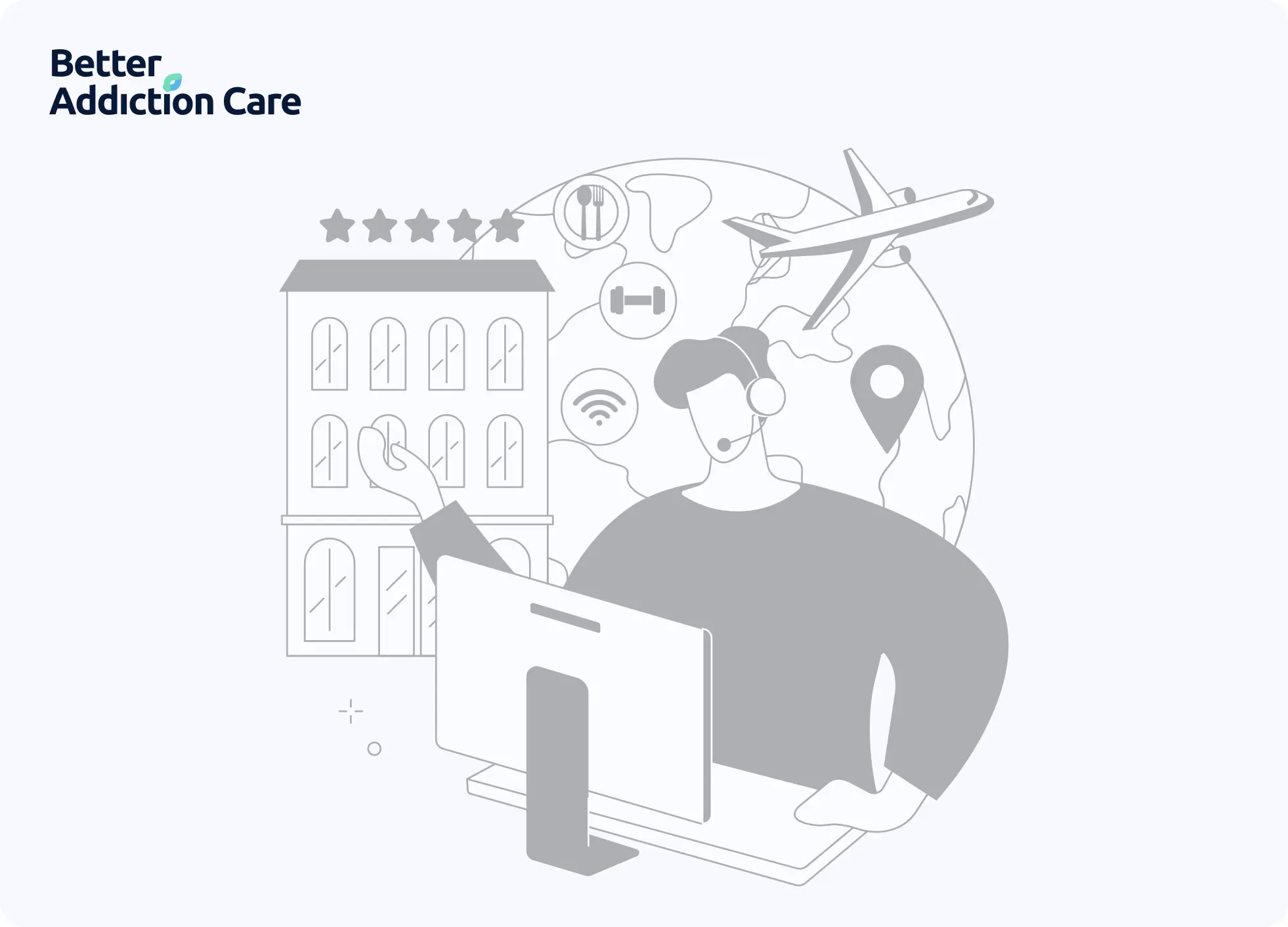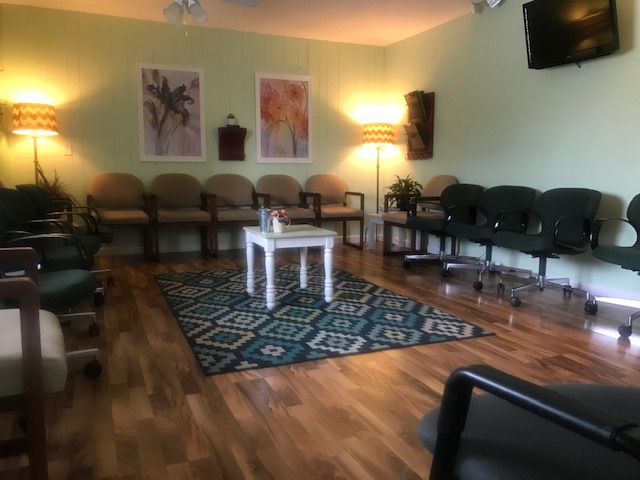Carbondale DUI & Counseling Associates

Overview
Carbondale DUI & Counseling Associates is a substance abuse treatment center for people seeking treatment near Jackson County. As part of their treatment modalities for recovery, Carbondale DUI & Counseling Associates provides group counseling during treatment. Carbondale DUI & Counseling Associates is located in Carbondale, Illinois, accepting private health insurance for treatment.
Carbondale DUI & Counseling Associates at a Glance
Payment Options
- Private health insurance
- Cash or self-payment
Assessments
- Comprehensive mental health assessment
- Comprehensive substance use assessment
Age Groups
- Adults
- Young adults
Operation
- Private for-profit organization
Accreditations
SAMHSA certification for opioid treatment program (OTP):
Accreditation by the Substance Abuse and Mental Health Services Administration (SAMHSA) for Opioid Treatment Programs (OTPs) signifies that a program has met strict standards for providing high-quality care to individuals with opioid use disorders. It assures patients, families, and communities that the OTP follows evidence-based practices, employs qualified staff and maintains a safe and effective treatment environment. This accreditation reflects the program's commitment to addressing the opioid epidemic and promoting recovery.
Treatment At Carbondale DUI & Counseling Associates

Conditions Treated
Mental health treatment:
Mental health treatment provides a safe and structured environment where individuals can receive professional care and support for their mental health challenges. Within the facility, trained therapists, counselors, and medical staff work together to create personalized treatment plans tailored to each person's needs. Patients might participate in a variety of therapies, including individual counseling, group therapy, and possibly medication management. The goal is to equip individuals with the tools and strategies they need to cope with their conditions and lead fulfilling lives.
Alcoholism:
Alcohol addiction is a health problem where drinking takes control over a person's life. It affects how their brain thinks and acts, leading to strong desires to drink, bad feelings, sudden actions, and discomfort when not drinking. To help someone with this problem, there are treatments like detox, counseling, group support, and learning coping methods. While treatment can't completely cure the urge to drink, it helps people regain control of their lives and feel better overall.
Opioid Addiction:
Opioid rehabilitation centers focus on aiding individuals in overcoming opioid addiction, whether stemming from illegal substances like heroin or prescription medications like oxycodone. These facilities provide a comprehensive approach that combines medical detoxification and ongoing physical care with intensive therapy to address the root causes of addiction.
Substance use treatment:
Substance use rehabilitation embodies a holistic treatment approach crafted to assist individuals contending with drug or alcohol addiction. This all-encompassing rehabilitation strategy encompasses two crucial components: initially addressing the physical dependency, frequently commencing with detoxification, and subsequently confronting the psychological triggers through a diverse array of therapeutic methods. The overarching objective is to empower individuals to achieve and maintain sobriety while equipping them with essential skills and coping mechanisms for a successful reintegration into society and a life free from substance abuse.
Co-occurring Disorders:
Dual-diagnosis rehabilitation centers focus on treating individuals with simultaneous mental health and substance use disorders. The intertwined nature of addiction and mental health issues can intensify each other's symptoms, complicating recovery. These centers provide a holistic treatment strategy addressing both conditions together, often encompassing thorough evaluations, a blend of therapeutic methods, family counseling, and post-treatment care.

Levels Of Care
Detoxification:
Detoxification, often shortened to detox, is like giving the body a fresh start by getting rid of harmful substances like drugs or alcohol someone may have taken. When a person stops taking these substances, they might feel sick or uncomfortable as their body adjusts to the change. Detox helps ease these uncomfortable feelings while making sure the harmful substances are removed from the body in a safe way. This process helps prevent any additional harm caused by the drugs or alcohol.
Aftercare:
Aftercare refers to the structured support and programs offered to individuals after completing an initial treatment phase for substance abuse or other disorders. Recognizing that recovery is an ongoing process, aftercare provides continued counseling, skill-building, group therapy, and resources to help individuals maintain sobriety, manage triggers, and reintegrate into daily life, reducing the risk of relapse and ensuring long-term success in recovery.
Outpatient:
Outpatient treatment at rehab centers provides adaptable therapy schedules, usually spanning 1-3 hours weekly, enabling participants to maintain their everyday routines while undergoing treatment. On the other hand, intensive outpatient programs require a more dedicated time investment, frequently around 9-15 hours a week, delivering a deeper therapeutic experience without the commitment of inpatient residency.

Treatment Modalities
Group counseling:
Group Counseling is a therapeutic approach where individuals come together under the guidance of a trained counselor to share experiences, offer support, and gain insights. This collective format promotes mutual understanding and growth, allowing participants to learn from one another's perspectives and challenges.
Individual psychotherapy:
In individual therapy, a person engages in a one-on-one session with a qualified therapist or counselor. This therapeutic approach is crucial in successful substance abuse treatment because it delves into the underlying causes of addiction, addressing issues the individual may encounter in their familial, social, and professional or academic environments.
Trauma-related counseling:
Trauma-related counseling addresses the deeply rooted psychological wounds and distress that often coexist with substance use disorders. Recognizing that past traumatic experiences can play a significant role in the onset and persistence of addiction, this therapeutic approach aims to help individuals understand and process their trauma, develop coping skills, and work towards healing. Individuals are better equipped to achieve long-term recovery and improved mental well-being by simultaneously addressing both trauma and addiction.
Family counseling:
Studies consistently show that the likelihood of sustainable recovery increases when family members are involved in rehab and substance abuse treatment. Genetic elements might influence susceptibility to drug and alcohol dependence and mental health challenges. Family interactions frequently contribute to addiction triggers. However, with the right education, family members can become pivotal support pillars during rehabilitation.
Marital/couples counseling:
Whether a marriage or other committed relationship, an intimate partnership is one of the most important aspects of a person's life. Drug and alcohol addiction affects both members of a couple in deep and meaningful ways, as does rehab and recovery. Couples therapy and other couples-focused treatment programs are significant parts of exploring triggers of addiction, as well as learning how to build healthy patterns to support ongoing sobriety.
Life Skills:
Life skills refer to a vital component of rehabilitation that focuses on equipping individuals with the essential abilities and strategies necessary to lead a fulfilling and substance-free life. These skills encompass a wide range of practical tools, such as effective communication, problem-solving, stress management, time management, and financial literacy. By integrating life skills training into addiction treatment programs, individuals gain the confidence and competence needed to overcome addiction and thrive in their personal and social lives, promoting long-term recovery and well-being.
Cognitive Behavioral Therapy:
Cognitive Behavioral Therapy (CBT) is a evidence-based psychological treatment that focuses on identifying and challenging negative thought patterns and behaviors. It aims to develop coping strategies and promote healthier thinking to address a variety of mental health issues, such as depression, anxiety, and stress. CBT is typically short-term and goal-oriented, emphasizing the role of thought processes in influencing emotions and behaviors.
Dialectical Behavior Therapy:
Dialectical Behavior Therapy (DBT) is an evolved version of Cognitive Behavioral Therapy (CBT) that aims to assist individuals in recognizing and influencing the interplay among their thoughts, emotions, and actions. DBT is particularly beneficial for those grappling with self-harming behaviors, including self-inflicted injuries like cutting, as well as suicidal ideations or tendencies. Clinically, it has shown effectiveness in managing intense emotions and conditions such as Borderline Personality Disorder.
Rational Behavior Therapy:
Rational Behavior Therapy (RBT) is a cognitive-behavioral approach to psychotherapy that emphasizes identifying, examining, and altering irrational beliefs and behaviors that contribute to emotional distress. RBT posits that emotional and behavioral disturbances are often the result of irrational thinking patterns. Through structured therapeutic sessions, individuals are taught to recognize and challenge these irrational beliefs, replacing them with more rational and adaptive thoughts, thereby promoting healthier emotional responses and behaviors.
Motivational Interviewing:
Motivational Interviewing (MI) in addiction treatment is a client-centered counseling approach designed to enhance an individual's intrinsic motivation to change. By addressing ambivalence and tapping into personal values, MI fosters meaningful conversations about substance use and promotes commitment to recovery-focused goals.
Ancillary Services
Special Programs
- Clients who have experienced trauma

Additional Locations
Contact Information
DISCLAIMER: The facility name, logo and brand are the property and registered trademarks of Carbondale DUI & Counseling Associates, and are being used for identification and informational purposes only. Use of these names, logos and brands shall not imply endorsement. BetterAddictionCare.com is not affiliated with or sponsored by Carbondale DUI & Counseling Associates.


